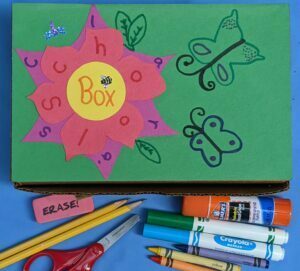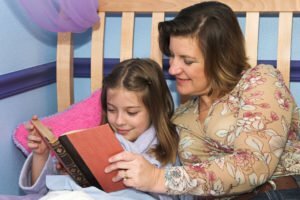¿Recuerda la última vez que usted se equivocó? ¿O tuviste un día malo? ¿Se dijo que fue porque “soy terrible?” O ¿se dijo “Ni modo, mañana trabajaré para hacerlo mejor”?
Cuando nos hablamos de una manera positiva, podemos hacer una gran diferencia en cómo nos sentimos. Cuando los niños saben hablarse positivamente a sí mismos, les ayuda a aumentar su autoestima y la autoconfianza. Puede ser que sea más probable que sigan intentando algo aunque no salió como quisieran la primera vez o que intenten cosas nuevas aun cuando sienten nervios.
Usted puede ayudarle a su hijo a hablarse positivamente. Aquí hay algunas sugerencias:
- Enseñarle a su hijo a reconocer la auto plática negativa. Esté al tanto para escuchar cuando su hijo dice cosas negativas sobre sí mismo, cosas que empiezan con “No puedo”, “Yo nunca” o “Yo siempre”. Hable con él o ella acerca de cómo se siente cuando se escucha decir que no puede o nunca va a poder hacer alguna cosa. Dígale que eso puede impedirle a su hijo de hacer lo mejor que pueda porque le quita la confianza.
- Ayudarle a su hijo a cambiar las cosas. Por ejemplo, sí su hija teme que no va a poder hablar delante de la clase, pregúntele por qué se siente así. Quizás no se siente bien preparada. Asegúrele que usted sabe que va a poder. Y luego, ayúdele a practicar un poco más. Pídale que piense en algunas cosas positivas que puede decirse cuando está nerviosa o angustiada, como “Practiqué esto. Voy a hacer lo mejor que puedo.”
- Darle a su hijo algunas frases positivas que puede decirse. A veces ayuda cuando tienen una frase positiva que pueden utilizar cuando se sienten nerviosos o miedosos, o cuando dudan su habilidad. Por ejemplo, Devin Hughes, el ex jugador de baloncesto y orador motivacional, dice que su papá le enseño la frase, “Yo soy, yo puedo, yo lo haré”. Usted y su niño pueden inventar una frase propia que tiene significado especial para su familia. Entonces, ayúdele a su hijo a recordar que cuando empieza a decirse algo negativo a sí mismo, debe parar, tomar una respiración profunda, y pensar en su frase especial.
- Modelar cómo es hablarse positivamente. Al igual que modelar la buena autoestima, es importante que usted deje que su hijo le escuche hablando positivamente a sí mismo. Entonces, evite usar frases negativas como “No puedo, “yo nunca” y “yo siempre”. En cambio, modele las cosas que quiere que su hija se diga a sí misma, como “Sé que hoy fue difícil, pero puedo intentarlo nuevamente mañana” o “Sé que puedo hacer lo mejor que pueda”. El hablarse positivamente puede ayudarle a usted también.
Entonces, en el año nuevo, ambos usted y su hijo pueden practicar ayudándose a hacer lo mejor que puedan, intentar cosas nuevas y aumentar la autoestima. ¡Anímense con algunas palabras positivas!





